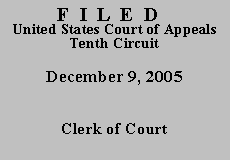

| ELLIS ENTERPRISES INC.,
Plaintiff - Appellant, v. SOFTWARE PACKAGING ASSOCIATES INC., Defendant - Appellee. |
|
Under Fed. R. Civ. P. 12(b)(6), we review a dismissal de novo, "accept[ing] all the well-pleaded allegations of the complaint as true." Utah Gospel Mission v. Salt Lake City Corp., 425 F.3d 1249, 1253 (10th Cir. 2005) (internal quotations and citation omitted). Further, we must construe these allegations in the light most favorable to the plaintiff and will uphold a Rule 12(b)(6) dismissal "only when it appears that the plaintiff can prove no set of facts in support of the claims that would entitle him to relief." Id., quoting Summum v. Callaghan, 130 F.3d 906, 913 (10th Cir. 1997).
Viewed through this appellate lens, Ellis alleged it paid SPA to develop a new line of Bible study software products which, in the ordinary course of business, retailers ordered through Ellis' retail representative or which Ellis received from direct internet sales. Ellis then contacted SPA which "reserve[d] inventory if there was enough in stock or, if there were not enough inventory, SPA would produce additional products sufficient to cover the order." SPA then shipped the software to the retailer. Ellis alleged the purchase orders and invoices were "done on credit." Ellis paid for the work after it was shipped. When Ellis "fell behind in payments to SPA beginning in May 2002," SPA, by late April 2003, refused to ship software unless Ellis paid the account in full or agreed to a new personal guaranty and signed a new Terms and Conditions of Sale agreement. By August 2003, Ellis alleged he was unable to pay the amount due and refused to sign a new agreement, although he still owed $21,225.29. When no payment was made in September, SPA sold the Ellis inventory, informing Ellis of the sale on October 22, 2003. Ellis alleged the unauthorized action destroyed his business.
Stripped to the essential core of the agreement for the sale of goods under the Oklahoma Uniform Commercial Code, the allegations failed to state a claim for relief under Oklahoma law, §§ 2-703, 2-706. The district court so held and proceeded to address each additional claim, concluding the allegations of the complaint similarly failed under Rule 12(b)(6).
Ellis, however, now recharacterizes his allegations, asserting the agreement was, in fact, an installment contract, whose breach is a question of fact depending on whether nonperformance of an installment impaired the value of the whole contract. Upon this construct, he alleges the parties' course of performance, SPA's pattern of accepting late payments, is relevant to determine whether waiver altered the contract terms, a question of fact, he asserts, the district court ignored.
We, however, decline to address each contention which is newly fabricated on appeal and with no basis in the complaint. Tele-Communications, Inc. v. Comm'r, 104 F.3d 1229, 1232-33 (10th Cir. 1997). "Propounding new arguments on appeal in an attempt to prompt us to reverse the trial court undermines important judicial values. In order to preserve the integrity of the appellate structure, we should not be considered a 'second-shot' forum, a forum where secondary, back-up theories may be mounted for the first time." Id. at 1233 (citations omitted). We therefore AFFIRM the dismissal of the complaint substantially upon the reasoning set forth by the district court.
Entered for the Court
Senior Circuit Judge
*. This order and judgment is not binding precedent, except under the doctrines of law of the case, res judicata, and collateral estoppel. The court generally disfavors the citation of orders and judgments; nevertheless, an order and judgment may be cited under the terms and conditions of 10th Cir. R. 36.3.